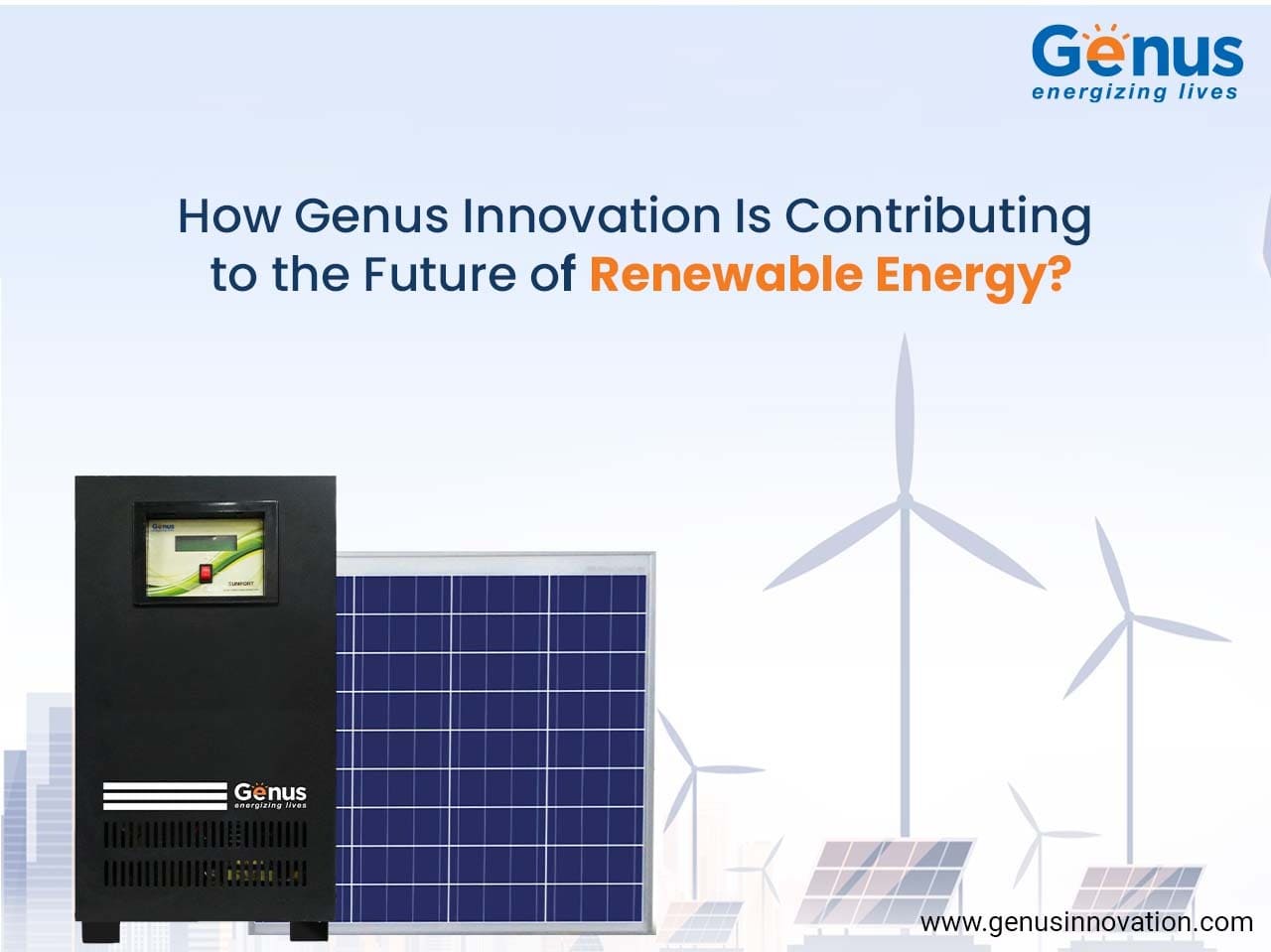Many forecasts circulating online delve into the topic of the future of renewable energy. Renewable energy serves as an alternative to fossil fuels, harnessing natural resources such as sunlight, wind, waves, rain, and water that can be replenished over time. Unlike fossil fuels, which are finite and deplete as they are consumed, renewable energy offers a sustainable solution for powering our world. As developing nations increasingly embrace renewable energy, India stands out as a prime example. The country's reliance on fossil fuels has long hindered its progress, but recent efforts to transition toward renewable energy sources are reshaping its energy landscape. If you're curious about the best solar panel prices in India, consider reaching out to Genus Innovation for guidance. But what does the future of renewable energy in India hold, and what are its key advantages? Let’s explore further. Rather than depleting finite resources, renewable energy sources such as sunlight, wind, and water provide consistent replenishment. These energy forms allow us to meet current demands without jeopardizing future generations' access to these vital resources. Additionally, renewable energy systems tend to emit fewer pollutants compared to traditional fossil fuels, helping to mitigate environmental harm like carbon dioxide emissions. Switching to renewable energy presents both environmental and financial advantages. Some of the most compelling benefits include: For premium solar charge controllers tailored to your household or commercial needs, trust Genus Innovation. Currently, renewable energy accounts for 26% of the world's electricity production. According to projections from the International Energy Agency, this percentage is set to rise to 30% by 2024. Lower technology costs and heightened awareness of environmental issues are driving this surge in renewable energy adoption after a lull in 2019. By 2024, global solar capacity is expected to grow by 600 gigawatts—nearly double Japan's current installed capacity. Globally, renewable electricity is anticipated to increase by 1,200 gigawatts, equivalent to the total power output of the United States. Beyond these broad trends, specific predictions about the future of renewable energy include: If you're ready to make the switch to renewable energy, consider purchasing a top-notch solar inverter from Genus Innovation. India currently faces severe energy shortages that hamper industrial and economic growth. Traditional power plants often depend on volatile fossil fuel imports, making renewable energy a critical solution. Harnessing solar, biomass, geothermal, and wind energy could alleviate these challenges while simultaneously addressing climate change concerns. At present, most of India's energy generation comes from coal and oil-based plants, which significantly contribute to greenhouse gas emissions. India's average per capita energy consumption hovers around 500 watts, far below levels seen in developed nations like Europe, the U.S., and Japan. However, rapid industrialization and economic expansion are expected to drive this figure higher. Sustainable renewable energy is essential for fueling India's growth while preserving its ecological balance. Transitioning from conventional energy sources to renewable alternatives is imperative to meet India's evolving energy demands while addressing pressing environmental issues. Embrace a greener future by adopting renewable energy solutions. To discover the most efficient solar products and the best solar panel prices in India, contact Genus Innovation today. As a leading manufacturer and distributor of intelligent electricity solutions in India, Genus Innovation has made significant strides in promoting sustainable energy across the nation. Each product we design prioritizes environmental preservation and long-term sustainability. Learn more about our commitment to the future of renewable energy by visiting our website or reaching out directly for additional details. Cellulose acetate butyrate resin, Can be used for coating ink, Synthetic Resin, CAB Resin,Modified Rosin Resin Guangzhou Chengbian Chemical Technology Co., Ltd. , https://www.gzcbct.com
Understanding Renewable Energy
The Benefits of Renewable Energy
Predictions About the Future of Renewable Energy
India's Journey Toward Renewable Energy
Genus Innovation’s Role in Shaping the Renewable Energy Future
How Genus Innovation Is Contributing to the Future of Renewable Energy?
Synthetic resin industrial products can be divided into general resins and specialized resins. General resin has a large production capacity and low cost, and is generally used for general consumer goods or durable goods. Representative varieties include five categories of synthetic resins: polyethylene, polypropylene, polyvinyl chloride, polystyrene, and ABS; Specialized resins generally refer to resins produced for specific purposes, with small production volumes and high production costs. For example, they can replace metals in sectors such as machinery, electronics, and automobiles, and engineering plastics belong to the category of specialized resins. Important engineering plastics include polyamide, polycarbonate, polyoxymethylene, polybutylene terephthalate, modified polyphenylene ether, and polytetrafluoroethylene. Another type of specialized resin is thermoplastic elastomer, which has elasticity similar to rubber and can be molded repeatedly when heated.